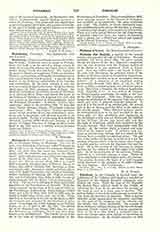

Ptolemy the Gnostic, a heretic of the second century and personal disciple of Valentinus. He was probably still living about 180. No other certain details are known of his life; Harnack’s suggestion that he was identical with the Ptolemy spoken of by St. Justin is as yet unproved (Text. u. Untersuch. New. Ser. XIII, Anal. z. Ält. Gesch. d. Chr.). He was, with Heracleon, the principal writer of the Italian or Western school of Valentinian Gnosticism. His works have reached us in an incomplete form as follows: (I) a fragment of an exegetical writing preserved by Irenaeus (Adv. Haer., I, viii, 5); (2) a letter to Flora, a Christian lady, not otherwise known to us. This letter is found in the works of Epiphanius (Hoer. XXXIII, 3-7). It was written in response to Flora’s inquiry concerning the origin of the Law of the Old Testament. This law, Ptolemy states, cannot be attributed to the supreme God, nor to the devil; nor does it proceed from one law-giver. A part of it is the work of an inferior god; the second part is due to Moses, and the third to the elders of the Jewish people. Three different sections are to be distinguished even in the part ascribed to the inferior god: (I) The absolutely pure legislation of the Decalogue which was not destroyed, but fulfilled by the Savior; (2) the laws mixed with evil, like the right of retaliation, which were abolished by the Savior because they were incompatible with His nature; (3) the section which is typical and symbolical of the higher world. It includes such precepts as circumcision, fasting, and was raised by the Savior from a sensible to a spiritual plane. The god who is the author of the law, in so far as it is not the product of human effort, is the demiurge who occupies a middle position between the Supreme God and the devil. He is the creator of the universe, is neither perfect, nor the author of evil, but ought to be called just. In his interpretation of the universe, Ptolemy resorted to a fantastic system of eons. Thirty of these, as he believes, rule the higher world, the pleroma. This system becomes the basis of a wild exegesis which discovers in the prologue of St. John’s Gospel the first Ogdoad. (See Gnosticism.)
N. A. WEBER

